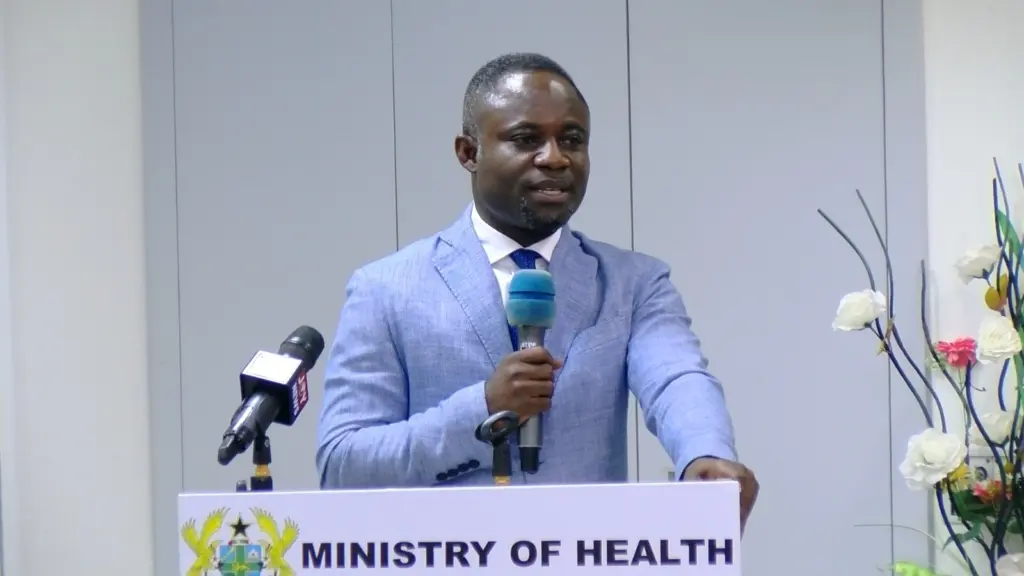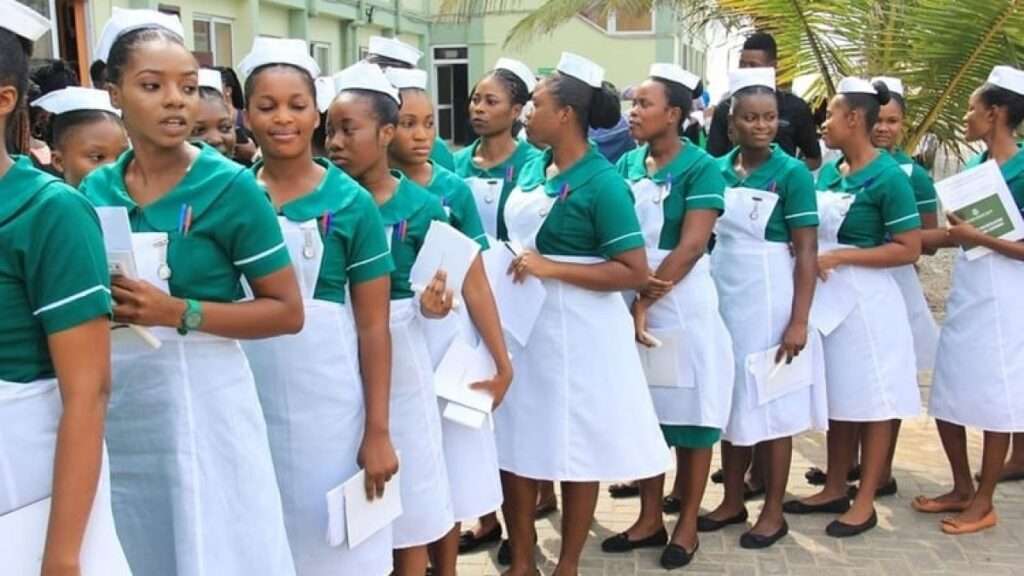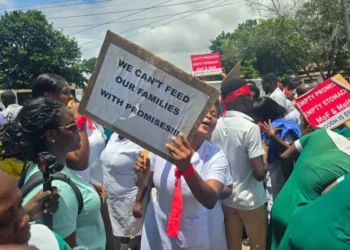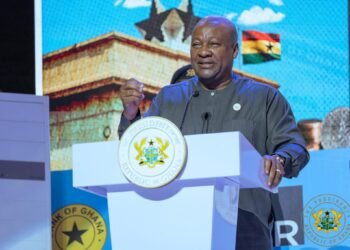Ghana’s health workforce is receiving significant attention as the government works to improve employment and conditions for healthcare professionals nationwide.
Health Minister Hon. Kwabena Mintah Akandoh revealed that over 10,000 nurses and midwives have been successfully employed in just the past six months. This forms part of the government’s broader strategy to address staffing shortages in the country’s health sector.
Speaking at the Government Accountability Series, the Minister detailed that the government has moved to clear salary arrears for 321 pharmacists and house officers who completed their training in 2024, with payments now actively being processed.
He noted that while 1,621 qualified pharmacists are currently waiting for permanent employment, their recruitment is being prioritized to help strengthen the national health workforce.
“Our biggest asset in health care is our people. The dedicated nurses, doctors, allied health professionals, pharmacists, and all supporting staff who serve Ghana every day.
“We recognize the challenges of over 70,000 qualified health workers currently awaiting employment. But I want to assure you that we are working tirelessly to clear this backlog.”
Hon. Kwabena Mintah Akandoh
He highlighted that addressing this backlog is a key part of the government’s larger commitment to ensuring that every trained health worker has the opportunity to contribute to Ghana’s healthcare system.

This includes strategies designed to ease employment pathways for healthcare graduates and strengthen human resource capacity across all levels of care.
To supplement direct government recruitment efforts, Hon. Akandoh explained that managed migration and private sector collaboration are being explored.
According to him, over 13 countries have so far expressed formal interest in recruiting Ghanaian health professionals, providing new avenues for skilled workers while supporting national healthcare priorities.
The Minister made clear that policies are being formulated to ensure that these international recruitment opportunities benefit both the national health workforce and individual professionals fairly.
Gov’t Backs Health Workforce Development Drive
Investment in professional development and welfare remains central to the government’s strategy.
As part of these initiatives, Hon. Kwabena Mintah Akandoh noted that conditions of service agreements have been implemented in partnership with health sector unions, targeting improved working conditions and retention of health professionals.
Efforts to bridge skill gaps have also led to the introduction of a new admission portal for health training institutions.

This online platform, designed for easier and more accessible applications, allows prospective students to apply from remote locations, reducing barriers to entry into health education.
The Minister described the portal’s launch as a response to identified shortcomings in the previous manual application process, noting that it includes cost reductions to make applications more affordable for applicants.
“This is good news. I’m pleased to announce that just twenty-four hours ago, the nursing training allowance for both the first and second quarters, GHC 462,580,000, was credited to the account of our student nurses.
Hon. Kwabena Mintah Akandoh
The Minister described widespread celebrations among students, reflecting the relief and appreciation expressed by trainee nurses nationwide upon receiving the funds.
He noted that “it’s a promise fulfilled.” This, he added, is evidence that the government’s commitment to supporting future health workers is not merely rhetorical but backed by tangible actions.
According to Hon. Akandoh, providing these allowances directly supports the training of the next generation of healthcare professionals, laying a solid foundation for future improvements in the national health workforce.

Looking ahead, the Minister announced that the government intends to maintain the timely disbursement of nursing trainee allowances.
The plan, he said, is to transition to a monthly payment schedule to ensure continuous support for student nurses. He remarked that “supporting our trainees today means building a stronger, healthier Ghana tomorrow.”
With these comprehensive initiatives, Ghana’s government aims to both strengthen the current health workforce and ensure the country is well-equipped to meet future healthcare demands.
The focus remains not just on expanding employment but also on building a motivated and highly skilled pool of health professionals ready to serve communities across the nation.























